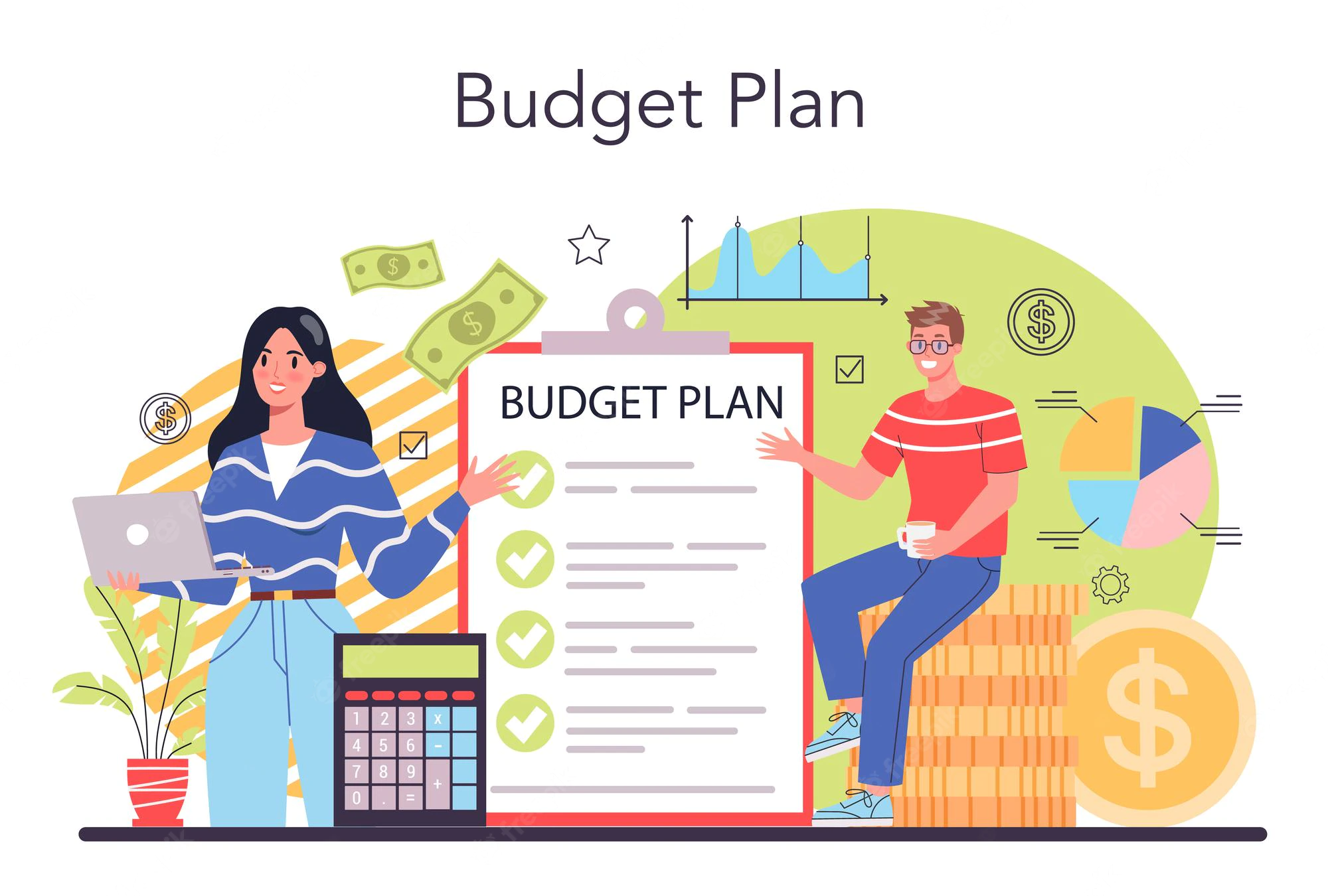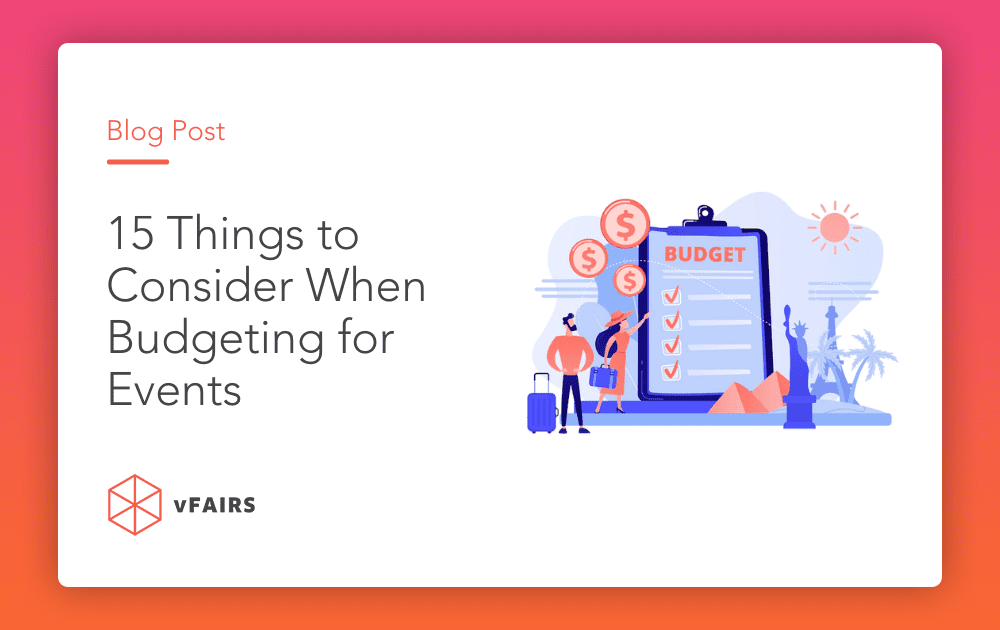Planning an event budget is typically not a favorite task for those in charge of organizing the event. However, event budgeting is essential whether you’re planning a corporate event or a wedding. Understanding your finances thoroughly can end up saving you time. Plus, you can make the most of your money to create an event that is both useful and memorable.
Creating a defined approach is key to staying within your budget. Start with a budget that should include labor, location, catering, planning, vendors, etc. Creating a budget involves tracking expenses and transferring money based on unexpected charges. Following a few rules can make budgeting easier.
This blog will cover all the essential points to remember while creating an event budget. We will dig deeper into the key elements as well as tips on how to create the best event budgeting plan.
What Should a Budget for an Event Include?
Managing your event budget is critical, but what should be included in your event budget may not be as evident. For example, when figuring out how much to spend on your venue, you must consider what you want to say and your goals in choosing the right place. Typically, your budget should start with the environment as we move back to live and hybrid events. For instance, if you’re planning an event outside, you must consider the extra costs of outdoor-rated screens and LED walls.
In addition to venues, thinking about your communication, technology, and audience size is essential when making a budget. For example, when making a budget for the technology, think about the goals of your meeting and what you need to say to get your point across. This will help you determine exactly what technology is necessary for your event.
Below are a few aspects that your event budget should include:
Travel & Accommodation

Will your company need to find places for people to stay who are going to the event? If this is true, how much will it cost? Depending on the size and scope of your event, this can be an easy part of your budget to forget. However, you should put this estimate at the top of your budget, so you don’t underestimate how much money you’ll need to make your event a success.
Facility Costs
Facility costs include the money you spend buying the venue. Create a budget based on how much you think it will cost. Also, think about any hidden costs that might come up, like those for security, lighting, or heating.
Logistics
Do you need special contracts, permits, or insurance to host your event? These things have to do with logistics, which is an integral part of any budget. How well you can guess this cost will mostly depend on where your corporate event will take place.
Food
What will the cost of food be? This will depend on how many people you think will come and how extensive the menu will be. Figure out how much it will cost based on how big and what kind of event you are planning.
Payment to Staff
Include staff pay in your event plan template so that you don’t have financial problems because you didn’t budget well. Directors or managers of an event will have to figure out how many staff members they will need to plan and run a successful event. Find out how much time you will spend and what kind of payment is necessary.
Marketing & PR
Promoting an event is an essential part of it. However, it can also take up a big chunk of the budget for your corporate event, especially if the organizers plan to make money from event fees or other charges. Think about the tools you want to use to market your event, and choose the ones that fit your budget the best.
How to Create the Best Event Budgeting Plan

Know Your Event Goals
The first step to creating an event budgeting plan is to know your objectives and goals. Your budget for your event should reflect everything you have in mind for it, from the big picture to the decorations, technology, setup, merchandise and talent.
Getting clear on the goals and priorities of your event will also help you set realistic expectations. Take stock of your goals and objectives before planning the event itself. What are the initial costs, like deposits? What kind of space do your guests need for your event? Will you make money from selling food, goods, or tickets?
List Down Specific Expenses
Now is the time to start looking into the details of each line item in your budget. You should make a good list of the things to include based on what happened in the past and what inspired you. But here are the most important things to include in your budget:
On-site Costs
- Venue
- Event Staff
- Food and beverage
- Audio/Visual Equipment
- Speakers and entertainment
- Transportation
- Swag and other handouts
- Security
Event Marketing and Promotion
- Graphic design
- Social media and paid advertising
- Printed marketing materials
- Affiliate and influencer fees
- Paid content marketing
Event Management Technology
- Event management platform
- Booking and ticketing fees
- Event website
- Mobile event app
- On-site check-in and registration
- Event Reporting
- Virtual event technology
Get Multiple Vendor Quotes
You should get multiple quotes from various companies for all of the above costs. This is the best way to ensure you’re getting a good deal and allows you to negotiate with vendors for a better price.
The other benefit of getting multiple quotes is learning more about how prices vary for each item. You won’t know the price range until you talk to more than one vendor. They can also help you figure out what you need and don’t. They might even know good ways to save money on a specific line item.
Balance Income and Expenses
How much money you think the event will bring in will significantly affect your budget as a whole. You can get cash from selling tickets, getting sponsors, selling goods and services at the event, and coming up with other creative ways to make money. Ensure to include estimates for all of these sources of income in your event budget. This will help you and others to see how much the event will cost and how much it is expected to make back.
This can also work the other way around. Once you have a good idea of your costs, you can come up with sponsorship packages or prices for tickets that will cover the total. This gives you a clear goal for how much money you want to make from the event and helps you keep your costs in check.
Separate Emergency Expenses
Those who have planned events know that there are always chances of errors. You might run out of something on the day of the event and have to rush. Your sound and video equipment might not work well with the venue. Your speakers might have to call in sick. No matter what it is, you need to be ready with a rainy day fund.
How much extra you need will depend on your event’s size and what you’ve planned for if something goes wrong. But as a general rule, you should add an extra 15–30% of your total budget.
Use an Event Management Software
Event management can be complex and take a lot of time. Of course, having a professional team to plan the event is the best way, but buying the right software for managing events may also be a good idea if your event is complicated.
vFairs is a leading virtual, hybrid and in-person event management platform that can help you organize a successful event the way you want to. It also offers a dedicated project management team who stays by your side throughout the process.
Key Takeaway
Planning a budget for an event of any size is difficult. However, as the event organizer, you must keep costs in check to ensure that the event generates the possible revenue.
We at vFairs have created this all-in-one event budgeting template for all event types. This guide can help you make the best budgeting plan for your next event!


